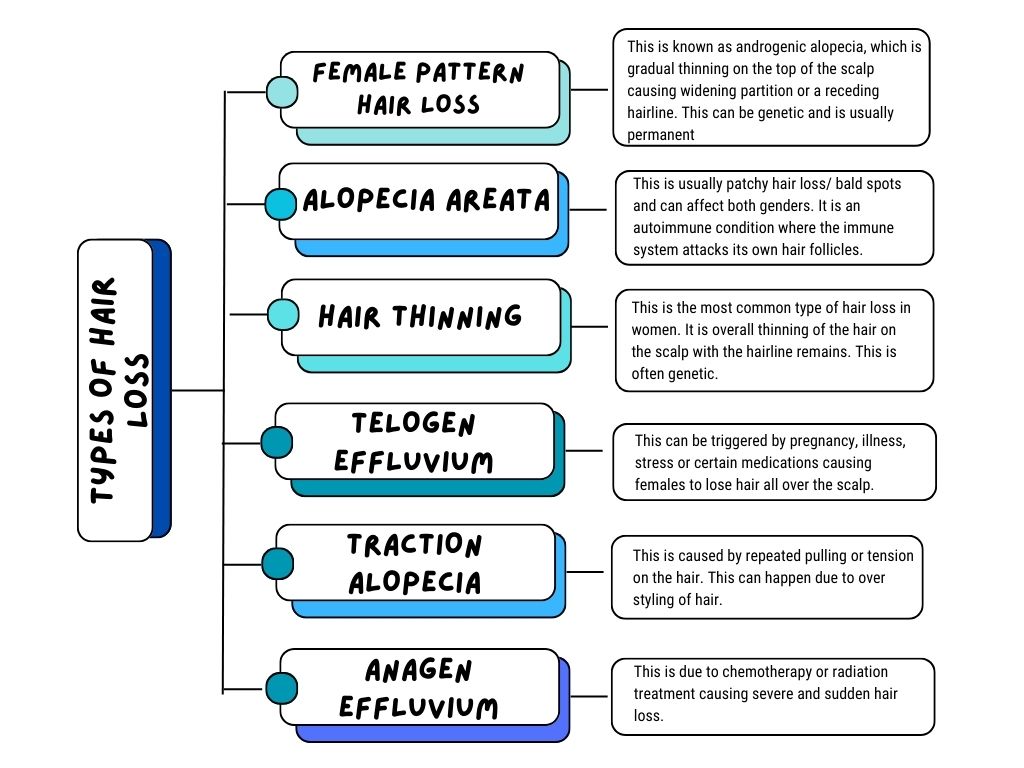Hair loss caused by stress or hormonal changes, like pregnancy or menopause, may not require treatment as hair regrowth may naturally recur. Any medical conditions causing hair loss should be treated first to address the symptom of hair loss. There are possible treatments for hair loss depending on the cause and type of hair loss.
Minoxidil
This is an over-the-counter liquid/foam topical solution. It is used on the scalp twice daily at the 2% strength and once daily at the 5% strength. The 2% is more common in women, and the 5% in men.
Spironolactone
Aldactone/spironolactone treats hair loss by acting on hormones. It is not approved for hair loss treatment but is actively used as an off-label medication.
Corticosteroids
Females with hair loss due to alopecia areata consider steroids injected or applied to the scalp to reduce the inflammation and help with hair growth.
Hair Transplant Surgery
In this procedure, pieces of scalp tissue are taken from one area of the scalp and moved to areas of baldness. Females may benefit from this, but it doesn't come risk-free; chances of infection or shock are present.
Other Female Hair Loss Treatments
Health professionals may recommend options like Botox injections, platelet-rich plasma injections, or immunosuppressants. Finasteride is an oral tablet that is prescribed to males with hair loss, however, it can be given off-label to females who do not plan on having children in the future.





